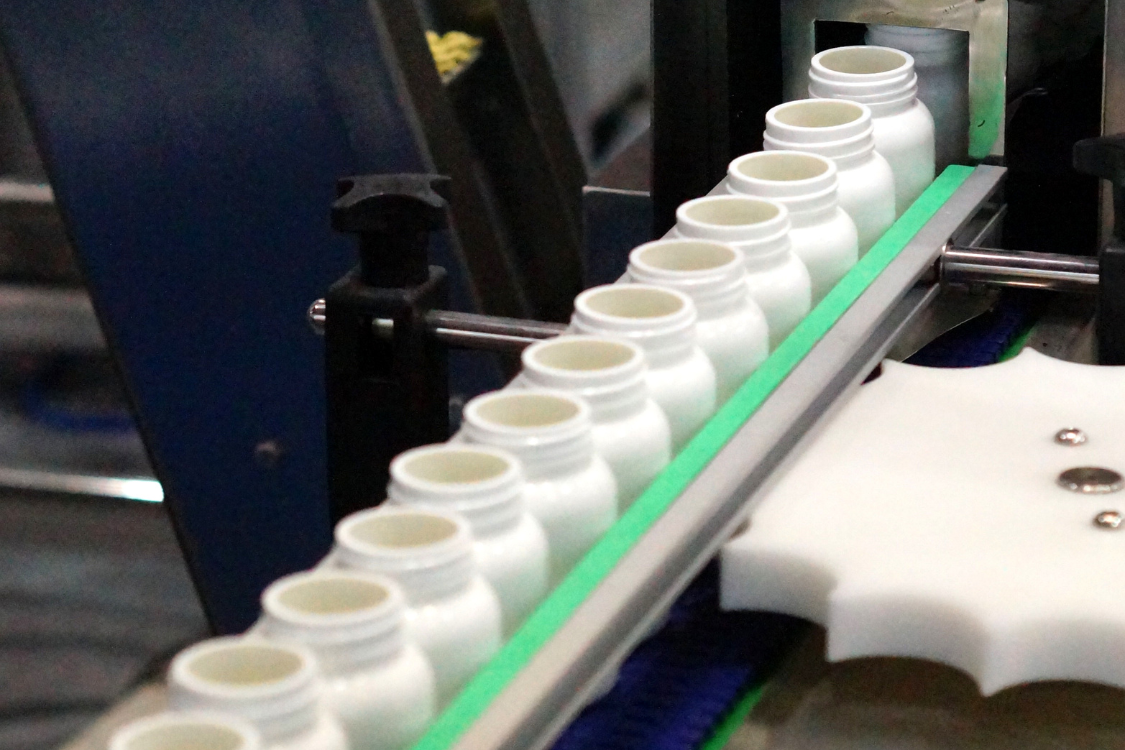Can you trust what your supplement manufacturer tells you? In the supplement industry, a lack of transparency can increase the risk of issues like unclear supplement labels, undisclosed fillers, and potential safety concerns that could damage your brand and customer trust. Many dietary supplement manufacturers make bold claims, but without full disclosure, you can’t be sure about ingredient quality, sourcing practices, or basic compliance with FDA (Food and Drug Administration) guidelines.
In this guide, you’ll learn how to spot red flags, ask the right questions, and confidently evaluate supplement manufacturer transparency so you can make informed decisions that protect your brand and your customers.
What Does Transparency Mean in Supplement Manufacturing?
Transparency in supplement manufacturing means sharing honest, clear, and complete information at every step of the process. It goes beyond what is printed on supplement labels and includes ingredient sourcing, quality assurance, certifications, and full compliance with current FDA guidelines and the Dietary Supplement Health and Education Act (DSHEA), which outlines labeling and safety requirements for supplements.
Transparent supplement companies clearly list all ingredients, including inactive ingredients, common allergens, and expiration dates, to help consumers make informed decisions. This level of detail is important for individuals with food sensitivities or those taking medications, as it allows them to avoid potential health risks. By avoiding vague terms or hidden proprietary blends and using transparent labels, these brands build trust and demonstrate a stronger commitment to safety and quality.

Key Signs of a Transparent Supplement Manufacturer
Some supplement companies go above and beyond to build trust. They’re open about their processes, quick to provide documents, and welcome questions. These actions show they have nothing to hide and understand that informed decisions rely on complete visibility.
A transparent manufacturer should:
- Proactively provide certifications and compliance documents, including GMP and third-party testing.
- Offer facility tours (virtual or in-person) to show their equipment, cleanliness, and process flow.
- Clearly outline each step of their manufacturing and quality control process—from raw materials to final packaging.
- Share detailed information about ingredient sourcing, including the country of origin and supplier reputation.
- Respond quickly and thoroughly to your questions regarding safety, ingredient lists, and dietary supplement health claims.
Examples of Transparent Behavior to Look For
Clear communication and visible processes help verify that a company takes quality seriously. Some of the best manufacturers:
- Offer real-time video calls so you can view their facility in action.
- Provide production records and audit results without hesitation.
- Explain where each ingredient comes from and share third-party lab results for every batch.
Red Flags That Signal a Lack of Transparency
Some supplement companies may claim to care about quality and safety, but their actions often tell a different story. Poor communication, delayed responses, or missing documents can quickly put your brand and customers at risk. Watch out for these warning signs:
- Delays or excuses when asked for certifications or compliance proof.
A trustworthy manufacturer should have these documents ready and be willing to share them without hesitation. - Vague answers when discussing quality control, ingredient traceability, or manufacturing steps.
Lack of detail can signal poor internal processes or an attempt to hide something. - Hesitation or refusal to allow a facility tour, even virtually.
Refusing a tour suggests they may not meet industry cleanliness, equipment, or operations standards. - Lack of third-party testing or missing batch-specific results.
You can’t verify product safety, potency, or label accuracy without independent testing. - Inconsistent answers, missing details on supplement labels, or unprofessional tone in communication.
These signs point to disorganization or potential dishonesty, which could harm your brand’s reputation.
Questions to Ask a Supplement Manufacturer to Test Their Transparency
Before choosing a supplement manufacturer, asking the right questions is essential to making an informed decision. These questions reveal how transparent a company is and whether they meet the standards your brand deserves:
- Can you provide up-to-date certificates of compliance and audit reports?
This helps confirm that the manufacturer meets regulatory standards and follows proper safety and quality protocols. - How do you verify the quality and origin of your ingredients?
Understanding ingredient sourcing ensures your products are made with clean, reliable, and ethically sourced materials. - Can I tour your facility (virtually or in person)?
A facility tour gives insight into cleanliness, equipment quality, and whether their operations reflect what they claim. - What are your quality control steps from raw materials to finished products?
This shows how seriously they take safety, consistency, and accuracy throughout the manufacturing process. - Do you offer third-party lab testing for all batches?
Independent testing confirms label accuracy and verifies the product is free from contaminants and unsafe levels of ingredients.

What to Do If a Manufacturer Isn’t Fully Transparent
If you’re unsure about a manufacturer’s honesty or they seem hesitant to share key information, take action early. Making informed choices starts with asking the right questions and knowing when to move on. Here are a few essential steps you can take to protect your brand and find a better fit:
- Ask clear, direct questions and follow up if answers are vague or delayed.
This helps identify whether the company is truly open or trying to avoid accountability. - Request specific documents like certifications, test results, or ingredient sourcing info.
Verified documentation allows you to confirm that the manufacturer follows proper safety and quality standards. - Keep a record of all communication in case issues come up later.
A paper trail protects you if misunderstandings, inconsistencies, or compliance concerns arise. - Don’t be afraid to leave if the company avoids transparency or gives inconsistent answers.
Continuing with an unreliable partner can lead to long-term risks for your business and your customers. - Trust your gut—if something feels off, it probably is.
Your instincts are valuable. It’s better to move on than to compromise your standards or brand reputation.
How Transparent Manufacturers Build Stronger Brand Partnerships
Transparent manufacturers do more than meet minimum requirements—they actively support your brand’s growth through honest communication, shared goals, and a commitment to doing things right. This kind of partnership builds a solid foundation for long-term success. A manufacturer that openly shares information at every production stage makes your job easier and reduces unnecessary friction.
Clear, consistent communication improves collaboration and ensures everyone is aligned on timelines, quality standards, and expectations. When there’s transparency, issues are addressed quickly, changes are handled efficiently, and production delays are minimized. This lets you focus on what truly matters—developing high-quality supplements and delivering an excellent customer experience.
Sharing critical details such as ingredient sourcing, manufacturing steps, third-party lab results, and compliance documentation builds confidence in your brand. It also gives you the information needed to support marketing claims and accurately answer customer questions. Informed consumers value clean labels, transparent sourcing, and trustworthy quality.
Working with a manufacturer who prioritizes transparency allows you to deliver all three, strengthening brand loyalty and helping your business grow in a competitive market.
Choose a Transparent Supplement Manufacturer for Long-Term Success
Transparency in the supplement industry is not optional—it is essential for protecting your brand, consumers, and reputation. A reliable dietary supplement manufacturer will openly share ingredient lists, sourcing details, certifications, and quality assurance procedures, giving you complete visibility into their process. They will offer facility tours, answer your questions clearly and promptly, and provide third-party testing without delay. Verifying these practices before choosing a partner helps you reduce risk, strengthen trust, and confidently move forward. This level of transparency is essential to building a supplement brand recognized for long-term value and safety.
Frequently Asked Questions
Why is transparency important in supplement manufacturing?
Transparency supports product safety by allowing you to verify processes, sourcing, and quality standards.
What questions should I ask to test a manufacturer’s transparency?
Ask about certifications, ingredient sourcing, facility tours, third-party testing, and quality control processes to verify supplement manufacturer transparency.
What are the warning signs of a non-transparent supplement manufacturer?
Red flags include delayed responses, missing certifications, vague answers, no third-party testing, and refusal to allow facility tours.
How do transparent manufacturers help protect my brand?
They reduce risk by providing accurate documentation, clear supplement labels, and complete visibility into sourcing and production.
Can I trust a supplement manufacturer that only offers virtual tours?
They provide clear, real-time access and verified certifications and answer all questions about their processes and ingredients.
References
- Office of Dietary Supplements. (n.d.). Dietary Supplement Health and Education Act of 1994. National Institutes of Health. https://ods.od.nih.gov/About/DSHEA_Wording.aspx
- Vento, K. A., & Wardenaar, F. C. (2020). Third-Party Testing Nutritional Supplement Knowledge, Attitudes, and Use Among an NCAA I Collegiate Student-Athlete Population. Frontiers in sports and active living, 2, 115. https://doi.org/10.3389/fspor.2020.00115



